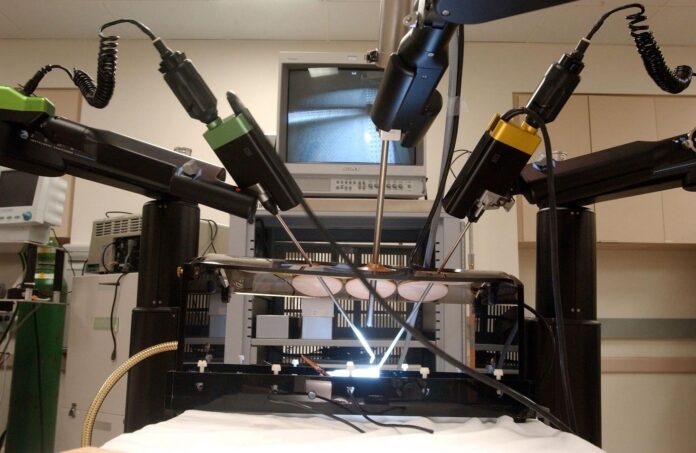Imagine your doctor suggests robotic surgery, promising less pain, faster recovery, and minimal blood loss. It sounds ideal, right? But should you trust this seemingly straightforward recommendation without further scrutiny?
Robotic surgery, despite its name, doesn’t involve autonomous robots performing procedures. Surgeons still control the instruments used during the operation—think of it like a highly advanced pair of remote-controlled tools. The surgeon sits at a console, manipulating robotic arms that hold surgical instruments with greater precision and dexterity than their own hands could achieve.
While robotic surgery might seem futuristic and undeniably attractive, the truth is more complex. Research shows its benefits are often subtle and only truly realized by surgeons who have dedicated considerable time to mastering the technology.
So why might your doctor be pushing for this option? Perhaps they have extensive experience with robotic systems and genuinely believe it leads to improved patient outcomes. Or maybe there’s another, less transparent factor at play: financial incentive.
Recent studies reveal a concerning potential influence on surgeons’ recommendations—industry payments from the companies that manufacture these expensive robots. A new analysis of physician posts on X (formerly Twitter) found a clear correlation between financial support from robotics manufacturers and increasingly positive sentiments expressed about robotic surgery by those same physicians. The study measured the “polarity” of comments, scoring them from -1 (highly critical) to +1 (overwhelmingly enthusiastic). Physicians receiving generous payments shifted their language noticeably after receiving those funds, moving from neutral or even mildly skeptical tones towards glowing praise for robotic procedures.
This isn’t about doctors being dishonest; it highlights a potential unconscious bias. Money talks, and when surgeons receive substantial financial benefits tied to specific technologies like robotic surgery systems, their perspective might unintentionally tilt in favor of these methods.
The implications are significant. Patients deserve transparent, unbiased medical advice. It’s crucial for physicians to maintain rigorous ethical standards by avoiding financial ties that could compromise objectivity. If you’re considering robotic surgery, don’t hesitate to ask your doctor about any potential conflicts of interest and explore all available treatment options with an open mind. Remember, informed consent means understanding not just the procedure itself but also the influences shaping the recommendation in the first place.




















